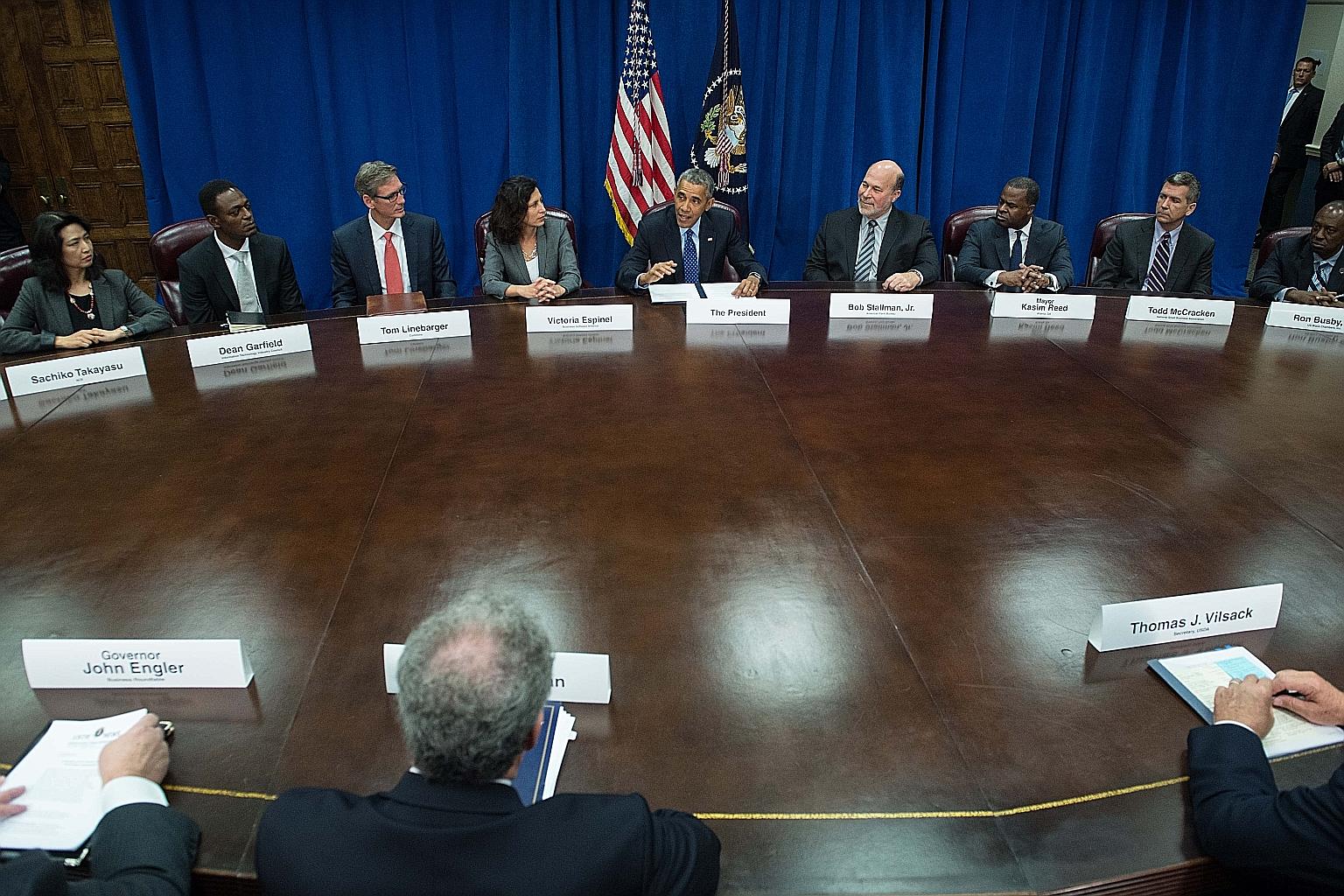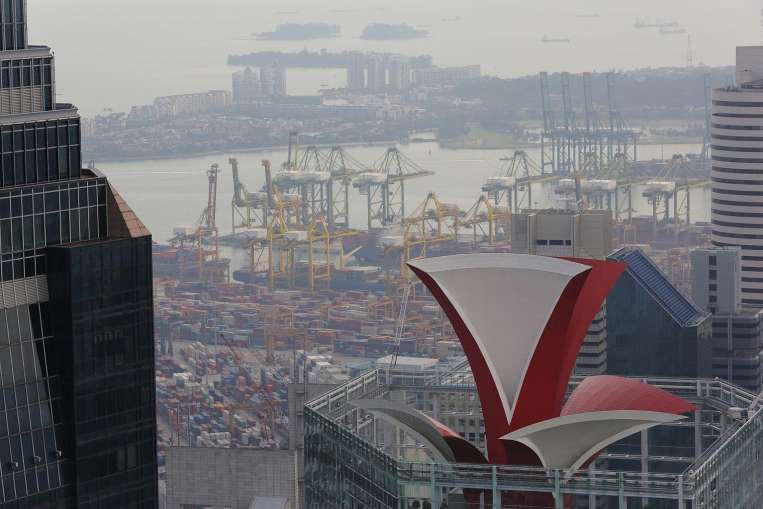The push for free trade
Sign up now: Get ST's newsletters delivered to your inbox

US President Barack Obama speaking about the Trans-Pacific Partnership agreement in Washington on Oct 6. The pact will plug into a market of 800 million consumers.
PHOTO: AGENCE FRANCE-PRESSE
Chong Zi Liang
Follow topic:
Free trade pacts have been in the news recently.
Twelve countries, including the world's No. 1 economy the United States, struck the biggest trade deal to date last month.
The Trans-Pacific Partnership (TPP) will plug Singapore into a market of 800 million consumers in nations accounting for one-third of world trade.
In yet another signal underscoring that Singapore is open for business, China - which is not in the TPP - and Singapore launched talks to upgrade their free trade agreement during President Xi Jinping's state visit here last weekend.
Also, Singapore and Turkey signed a free trade agreement yesterday that will open up business and investment opportunities for companies from both countries.
But Singapore views such trade deals "not only as economic, but also strategic tools", says Ms Sanchita Basu Das of the Asean Studies Centre at the Iseas-Yusof Ishak Institute. The TPP, for instance, "is viewed positively as it is anchoring the US economically in the region" and therefore "of high strategic value to Singapore because of fast-rising China".
Still, the TPP is not yet a reality. The pact has to be endorsed by different branches of government in the 12 countries that signed it.
Leaders of 21 Asia-Pacific economies also meet in the Philippines this week for their annual summit, looking at liberalising trade across the Pacific Ocean.
Why these deals? What is in it for those involved? How has the free trade that these agreements facilitate, changed the way nations deal with each other, especially for a country such as Singapore that is already very much an open economy? Insight takes a look.
What difference will TPP make for Singapore?

Economists and experts Insight spoke to, like NUS economics associate professor Davin Chor, agree it is unlikely "that we will see goods becoming significantly cheaper or the new entry of brands into Singapore as a result of the TPP".
This is because the country already has a very open economy, and so additional pacts do not open the floodgates for new goods and services to enter in dramatic fashion.
What lies ahead for free trade?

Each of the 12 countries in the pact will have to go through domestic ratification involving different branches of government.
This process is expected to be smooth in Singapore, where the deal must be approved by the Cabinet. Parliament must then pass legislative changes that may be required.
Why sign free trade pacts?

But what are the advantages of such agreements?
One expert describes the benefits as a case of "using your noodle".
What's with the protests?
In February last year, a group of people dressed as zombies took to the streets of Kuala Lumpur.
But they were not fancy-dress partygoers in a parade. Instead, they were marching against the Trans-Pacific Partnership (TPP), which they believe will cause medicine prices to spiral out of control.
The spectre of higher drug prices was discussed in Singapore, too, as there were fears that big pharmaceutical companies would successfully demand long 12-year patents that would give them a monopoly over next-generation medicine.

